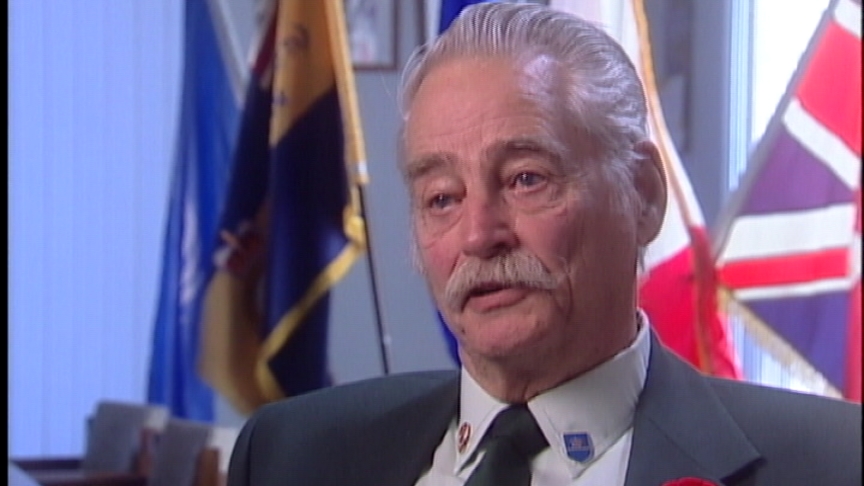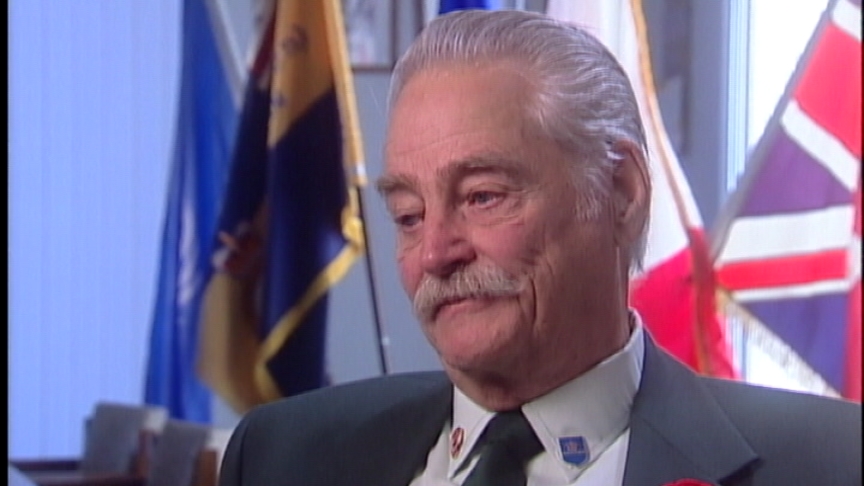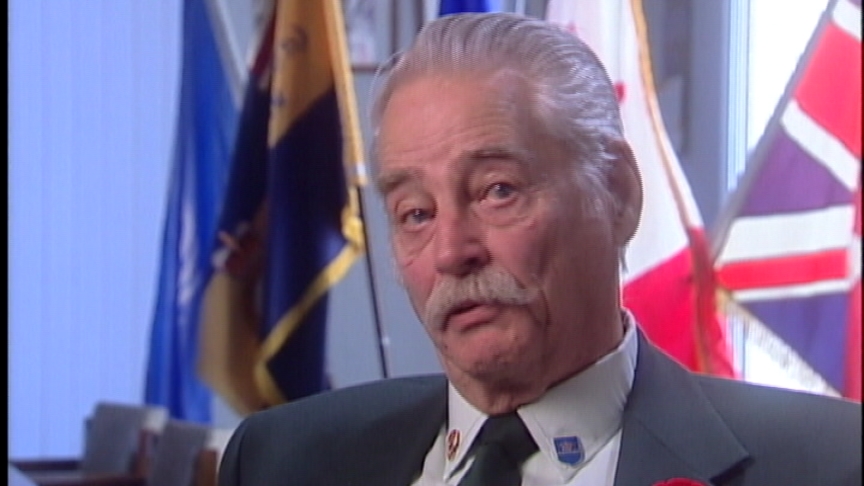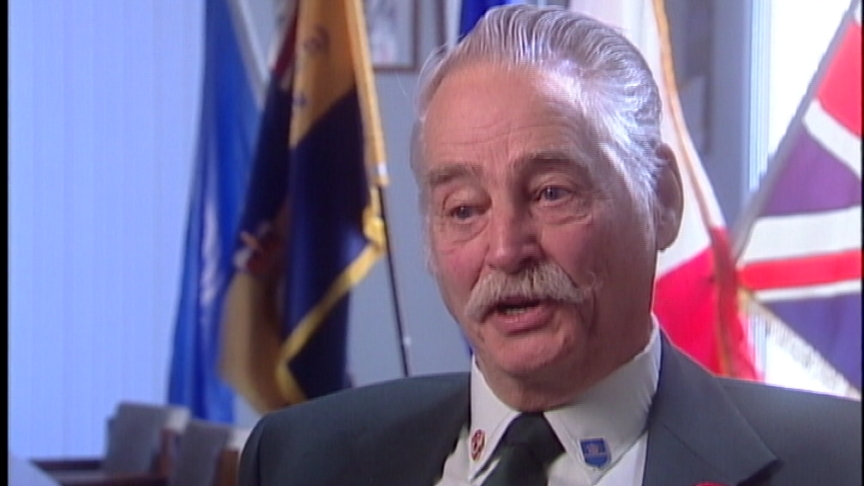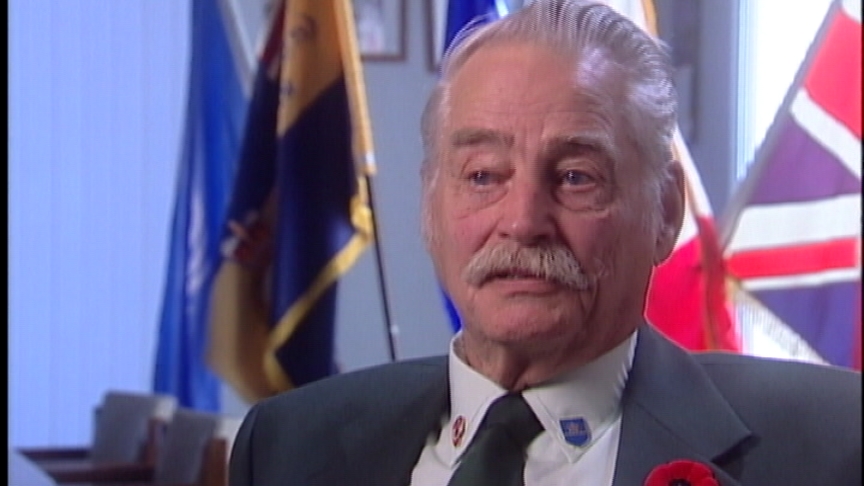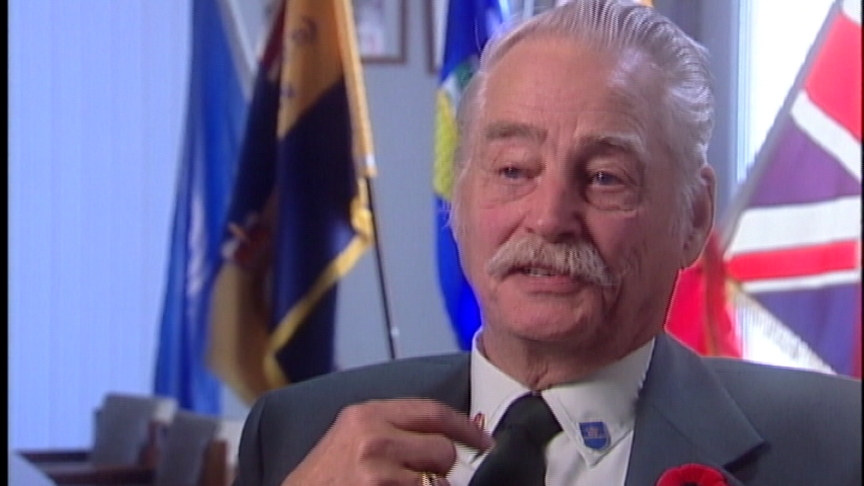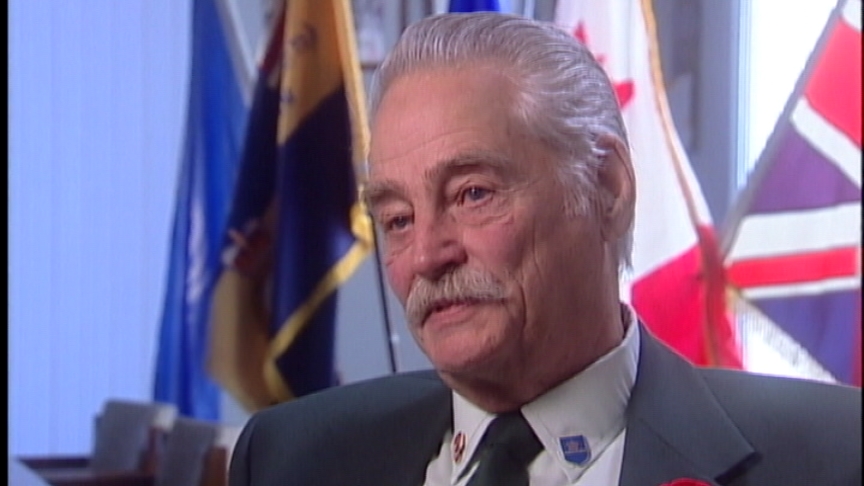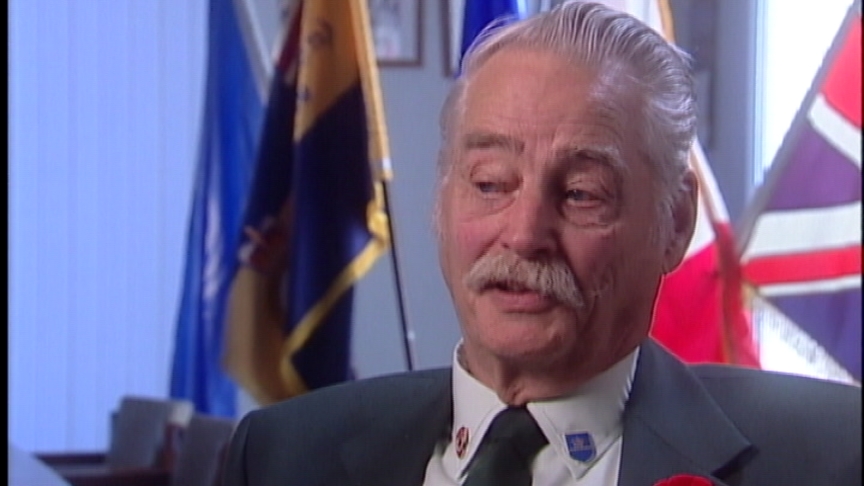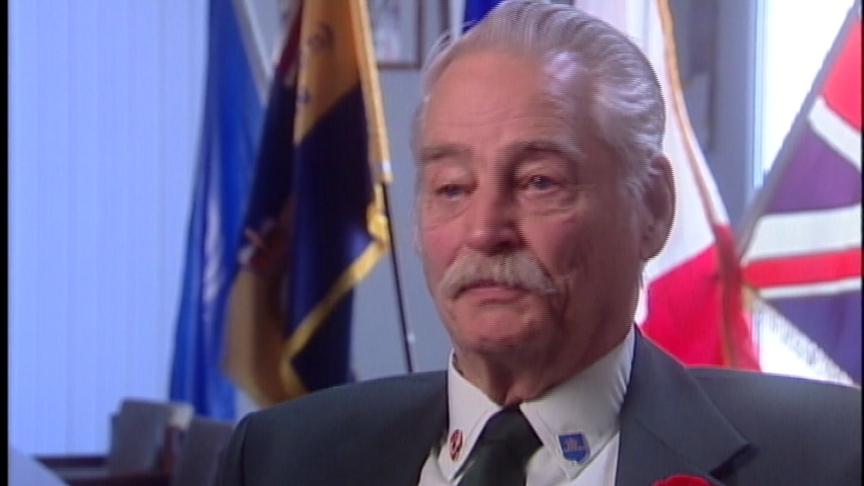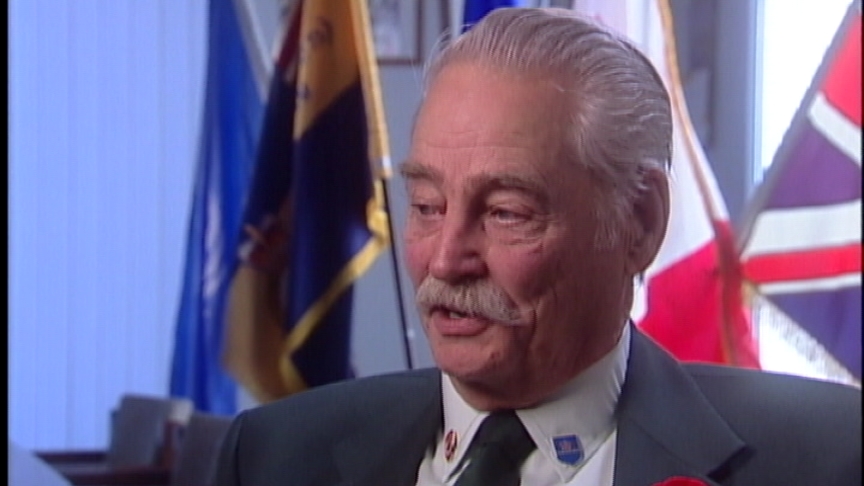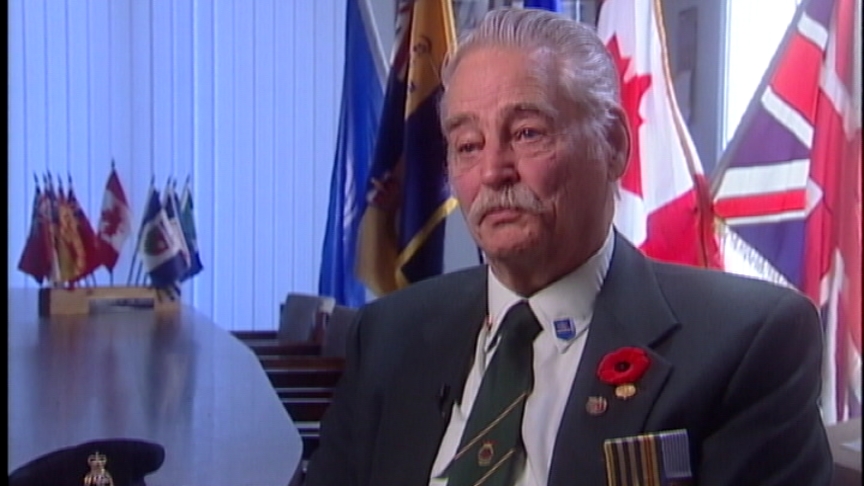You Eat What's Hot
Heroes Remember
You Eat What's Hot
Interviewer: What was the food like?
Well their food, I couldn't eat it. I, I tried a few times but no
I couldn't eat their food. They had stuff like vegetable marrow,
and melon, and it all grew up on the roofs you know, and they
thought it was good, but.. Our food, well once in awhile we got
hot, or what they said hot, it was supposed to be hot I guess
when it left but... Funny you should ask that because some,
some of the staff came up one time, I think it was, no I don't
even remember, but I know we was going to get hot rations. And a
buddy of mine he had no tin plates, you know. We had tin,
tin mess tins, and one would fit in the other and then you had a
cup with that. Well he had lost his, so of course a hero like me,
and well I gave him the larger of the two. And then you go down
the line and get your groceries, or whatever you want to call it.
And I come to the end and the guy says "Well, what are you going
to have? Are you going to have tea or are you going to have
peaches?" And I said "I got no room in here for nothing". So he
dumped the whole works, it was just like eating out of slough
pail, stunk about the same.
Interviewer: And you had given your big...
And you ate it, you darn right you ate it. It didn't taste good
but hey, it was warm. If you had to eat out of a tin in the
winter time, you put a dent in the tin with your rifle butt or
whatever you had, threw it on the fire, and when the dent
came out, you knew it was safe enough to eat.
And you'd get it before it exploded of course. But the summer
that, that kind of food, a little bit of that goes a long way,
you know. Once it's opened you don't... you have your fill and
never touch that tin again because it would kill ya, bugs, uhg.
Interviewer: Hard to imagine for someone to be in that situation
Well you had to have been there, to really know what it was like,
you know you couldn't, you can't really tell anybody. I suppose
these guys that went through the Second World War and in Europe
had probably endured a whole lot worse then we did, but you just,
you had to have been there to really know what it was like you
know.
Related Videos
- Date modified:



